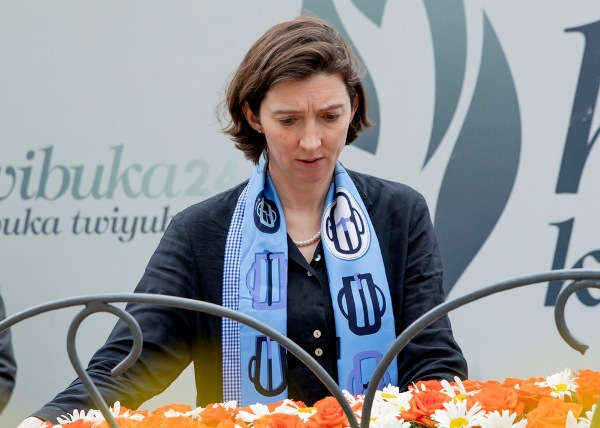
Kigali: Lindy Cameron, DFID’s Director General for Country Programmes, today visited the Kigali Genocide Memorial to pay her respects to those who lost their lives in the genocide against the Tutsi. The purpose of her visit was to express solidarity with the Rwandan people in this, the twenty fifth year since the genocide.
Lindy Cameron is visiting Rwanda to meet various government officials and private sector leaders in Rwanda to discuss how UK can continue to support Rwanda as it adapts to new development challenges. She noted the exceptional developmental progress Rwanda continues to make, and reaffirmed how proud the UK is to partner with Rwanda. She said:
“The UK is extremely proud of what it has achieved with Rwanda over the past 25 years. We have directly contributed to Rwanda’s achievement of lifting almost 2 million people out of poverty since 2005. Our partnership is about more than just aid – last year the UK was the second largest investor in Rwanda”.
This was Lindy’s second visit to the memorial. In her first visit, in May 2016, she said the memorial was “incredibly powerful and very moving” and spoke of her own experiences of growing up in Northern Ireland.
She said: “What’s been done in Rwanda is a very powerful story of helping people to try and move on and build a better and different future that means the conditions that allowed the genocide to happen can’t be recreated again. And it’s something that will take many generations but it’s been very impressive to see what’s been done so far and we are very proud of our support to help that”.
Lindy is responsible for overseeing DFID’s programmes in Africa, Asia, the Caribbean and Overseas Territories. She was previously DFID’s Director of the Middle East, Humanitarian and Conflict department and Head of DFID in Afghanistan and Iraq.
The UK has supported Rwanda’s development for the past 25 years. The UK’s development assistance to Rwanda is RWF205bn (£178m) year. This includes DFID Rwanda’s work and its contribution through multilateral organisations working in Rwanda. Its priority sectors are education, agriculture, social protection, supporting economic growth and taxation. (End)
